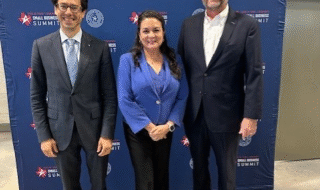March 19, 2024 Last Edit: July 22, 2024
NFIB's February Small Business Economic Trends survey shows inflation as a top concern, with the optimism index continuing below the 50-year average for the 26th consecutive month.
Small business owners continue to flip between inflation and labor quality as their top concerns as employment shows signs of slowing down. In NFIB’s February Small Business Economic Trends survey, the Small Business Optimism Index decreased half a point to 89.4. This is the 26th consecutive month below the 50-year average of 98. The last time the index was at or above the average was in December 2021.
“While inflation pressures have eased since peaking in 2021, small business owners are still managing the elevated costs of higher prices and interest rates,” said NFIB Chief Economist Bill Dunkelberg. “The labor market has also eased slightly as small business owners are having an easier time attracting and retaining employees.”
Key findings of the report include:
- Twenty-three percent of small business owners reported that inflation was their single most important business problem in operating their business, up three points from last month and replacing labor quality as the top problem.
- A net negative 13% of all owners (seasonally adjusted) reported higher nominal sales in the past three months, up 1% from January. The net percentage of owners expecting higher real sales volumes improved six points to a net negative 10% (seasonally adjusted).
- The net percentage of owners expecting higher retail volumes improved six points to a net negative 10% (seasonally adjusted).
- Thirty-seven percent (seasonally adjusted) of all owners reported job openings they could not fill in the current period, down two points from January and the lowest reading since January 2021.
- The net percent of owners raising average selling prices declined one point from January to a net 21% (seasonally adjusted), the lowest reading since January 2021.
As reported in the Small Business Economic Trends report, owners’ plans to fill open positions slowed with a seasonally adjusted net 12% planning to create new jobs in the next three months, down two points from January and the lowest level since May 2020.
The net percentage of owners reporting inventory gains decreased by one point to a net negative 1% (seasonally adjusted). Not seasonally adjusted, 13% reported stock increases (unchanged from January), and 19% reported reductions (unchanged from January). A net negative 4% (seasonally adjusted) of owners viewed current inventory stocks as “too low” in February, unchanged from January. By industry, shortages were reported most frequently in transportation (17%), services (12%), construction (11%), and manufacturing (11%).
Price hikes were the most frequent in finance (59% higher, 2% lower), retail (43% higher, 13% lower), construction (42% higher, 8% lower), services (36% higher, 8% lower), and professional services (36% higher, 0% lower).
The full Small Business Economic Trends report and the NFIB Jobs Report are available for further analysis.
NFIB is a member-driven organization advocating on behalf of small and independent businesses nationwide.
Related Articles














